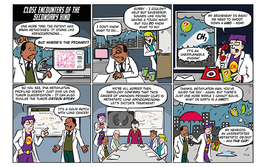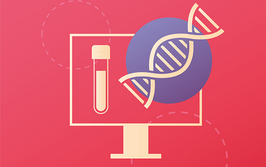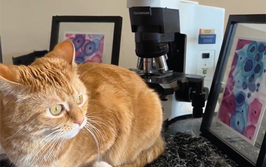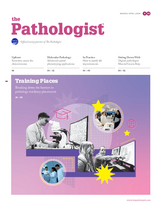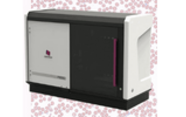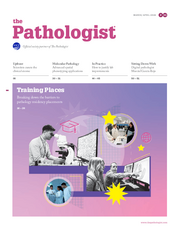More Than a Gut Feeling
A noninvasive test to profile intestinal microbiota could help diagnose and predict the course of inflammatory bowel disease
Inflammatory bowel disease – what does that diagnosis mean? For many patients, it can be hard to say. The disease is highly variable, and it’s extremely difficult to predict its course –especially in children, where IBD can be far more aggressive than in adults. But with so little ability to forecast the behavior of the disease, how can doctors decide which young patients are likely to need more extensive monitoring and treatment?
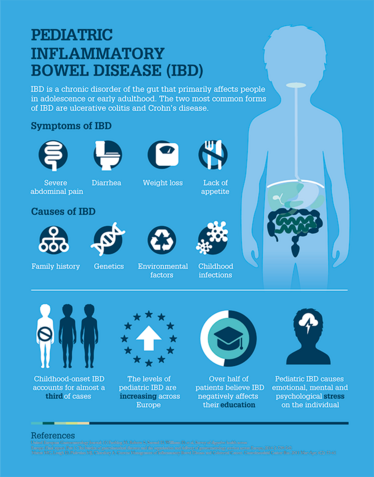
Until now, there has been no effective way to stratify IBD patients for intervention. Enter a team of researchers from Oslo, Norway, who have developed a genetic test to profile the intestinal microbiota of newly diagnosed pediatric IBD patients. After examining fecal samples from 235 children, they discovered that the microbiota profiles of those with more extensive disease differed significantly from those with limited or no disease (1).
Lead researcher Christine Olbjørn explained that the intensity of the probe – indicating abundance of fecal microbiota – was significantly lower in symptomatic children (whether diagnosed or not) than in those with no IBD symptoms (2). Olbjørn added that, when compared with children with limited disease, those with more extensive IBD had significantly more Clostridiales, whereas those with extensive Crohn’s disease had more Proteobacteria, which she described as “intriguing.” Furthermore, children who were ultimately deemed to need TNF inhibitor therapy exhibited lower pre-treatment microbial diversity than those for whom conventional
treatment sufficed.
What does that mean for the clinic? Genetic profiling of fecal samples is a noninvasive way of establishing the extent of gut dysbiosis in newly diagnosed IBD patients – and may help to predict the course of the disease and identify patients who could benefit from more aggressive interventions.
- C Casén et al., “Deviations in human gut microbiota: a novel diagnostic test for determining dysbiosis in patients with IBS or IBD”, Aliment Pharmacol Ther, 42, 71–83 (2015). PMID: 25973666.
- ESPGHAN, “Study identifies a new test to predict severity of inflammatory bowel disease in children” (2017). Available at: bit.ly/2pB9qry. Accessed May 16, 2017.

While obtaining degrees in biology from the University of Alberta and biochemistry from Penn State College of Medicine, I worked as a freelance science and medical writer. I was able to hone my skills in research, presentation and scientific writing by assembling grants and journal articles, speaking at international conferences, and consulting on topics ranging from medical education to comic book science. As much as I’ve enjoyed designing new bacteria and plausible superheroes, though, I’m more pleased than ever to be at Texere, using my writing and editing skills to create great content for a professional audience.




